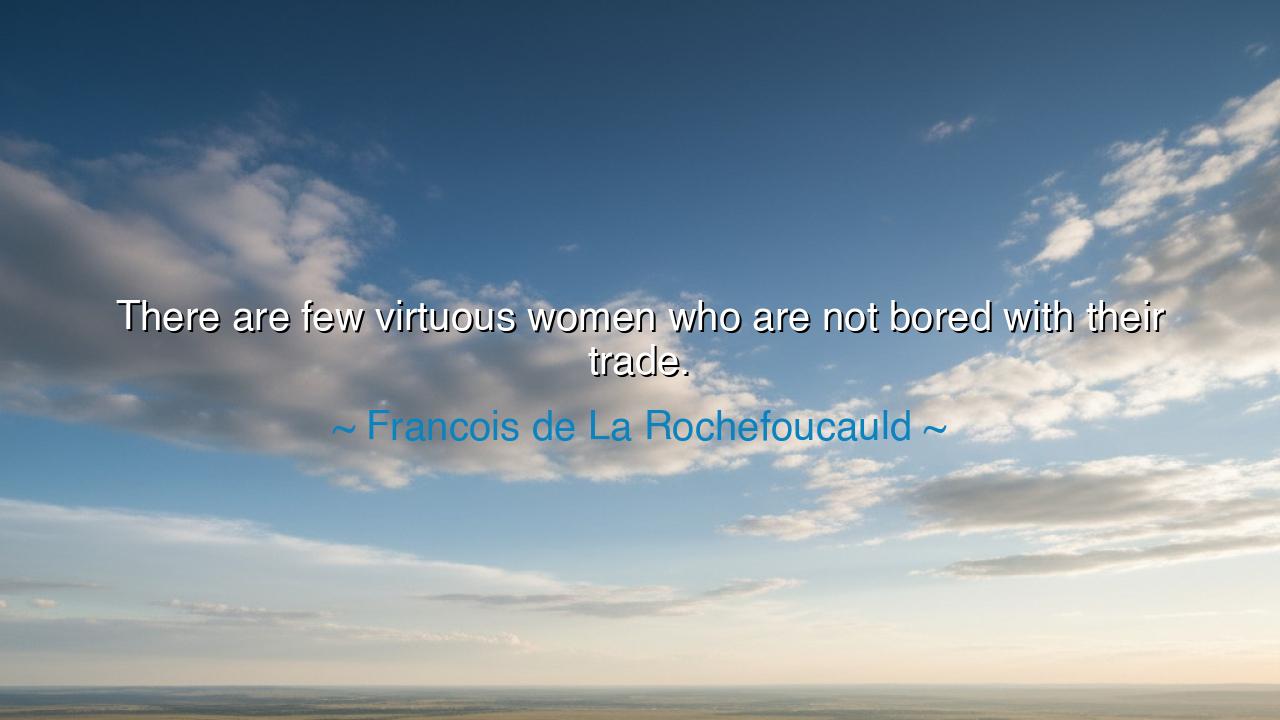
There are few virtuous women who are not bored with their trade.






The words of François de La Rochefoucauld, “There are few virtuous women who are not bored with their trade,” strike like an arrow of irony, aimed at the heart of human nature. He speaks not to belittle women, but to unveil a paradox: that virtue, when confined only to restraint and duty, can become a weary burden. What the world praises as purity or self-denial may, in truth, weigh heavily upon the soul, leaving the heart restless, longing for freedom from the endless watchfulness demanded by society.
The origin of such thought lies in the salons of 17th-century France, where La Rochefoucauld observed with sharp eyes the hypocrisies of court and custom. He saw how women, confined by the rigid codes of honor and chastity, were praised for virtue yet denied the richness of choice. Their trade, if such it may be called, was to embody patience, restraint, and obedience. Such roles, gilded in praise, often masked the boredom of lives denied adventure, expression, and passion.
Consider the story of Anne of Austria, queen of France, who for many years lived under suspicion, gossip, and the rigid expectations of royalty. Though bound by her image of virtue, her private life was filled with isolation and sorrow, as she was expected to serve as a symbol rather than a woman of flesh and spirit. History records her piety and her loyalty, but behind the veil of courtly reverence, one imagines the weight of weariness—how endless must have been the watch to maintain her image, how little room there was for her heart’s true desires.
In this way, La Rochefoucauld’s words carry both satire and warning. When virtue is reduced to performance, when society demands perfection rather than authenticity, it condemns women to a role that is less about holiness and more about constraint. The boredom he describes is not the flaw of women, but the flaw of a world that limits their horizons, praising them for patience while denying them freedom.
Yet from this insight comes a deeper lesson for the generations that follow. Virtue must not be a cage, but a choice; not an enforced trade, but a path freely embraced. Only when women are free to live fully—expressing wisdom, passion, creativity, and strength—can virtue be radiant rather than weary.
Let us therefore pass on this truth: beware the kind of honor that shackles rather than uplifts. For true virtue does not bore the soul, but enlivens it. When women are free to shape their own destinies, their virtue will shine not as a burden, but as a flame—bright, joyous, and unquenchable.






AAdministratorAdministrator
Welcome, honored guests. Please leave a comment, we will respond soon